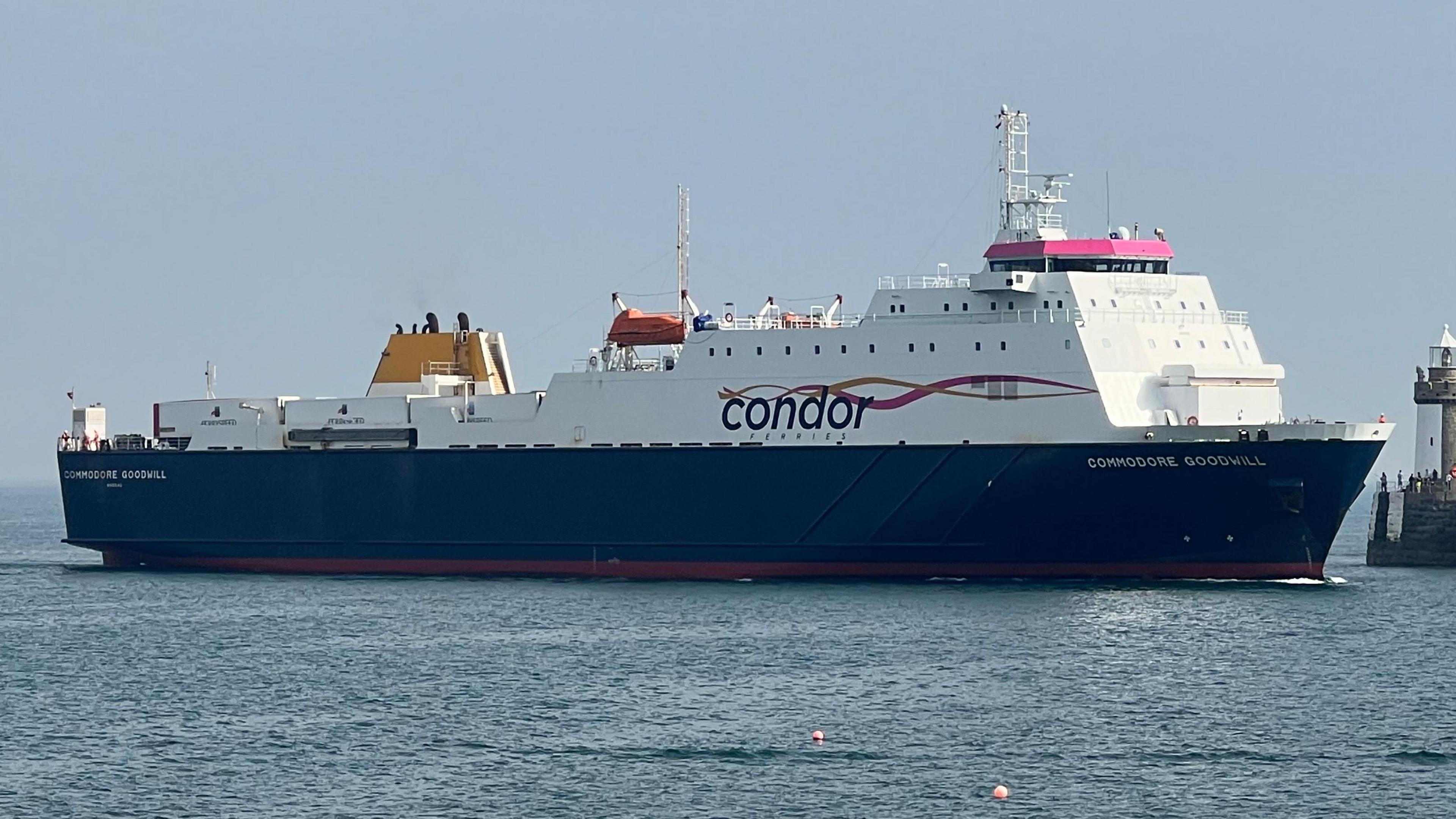Crash ferry radar use 'unacceptable', court told
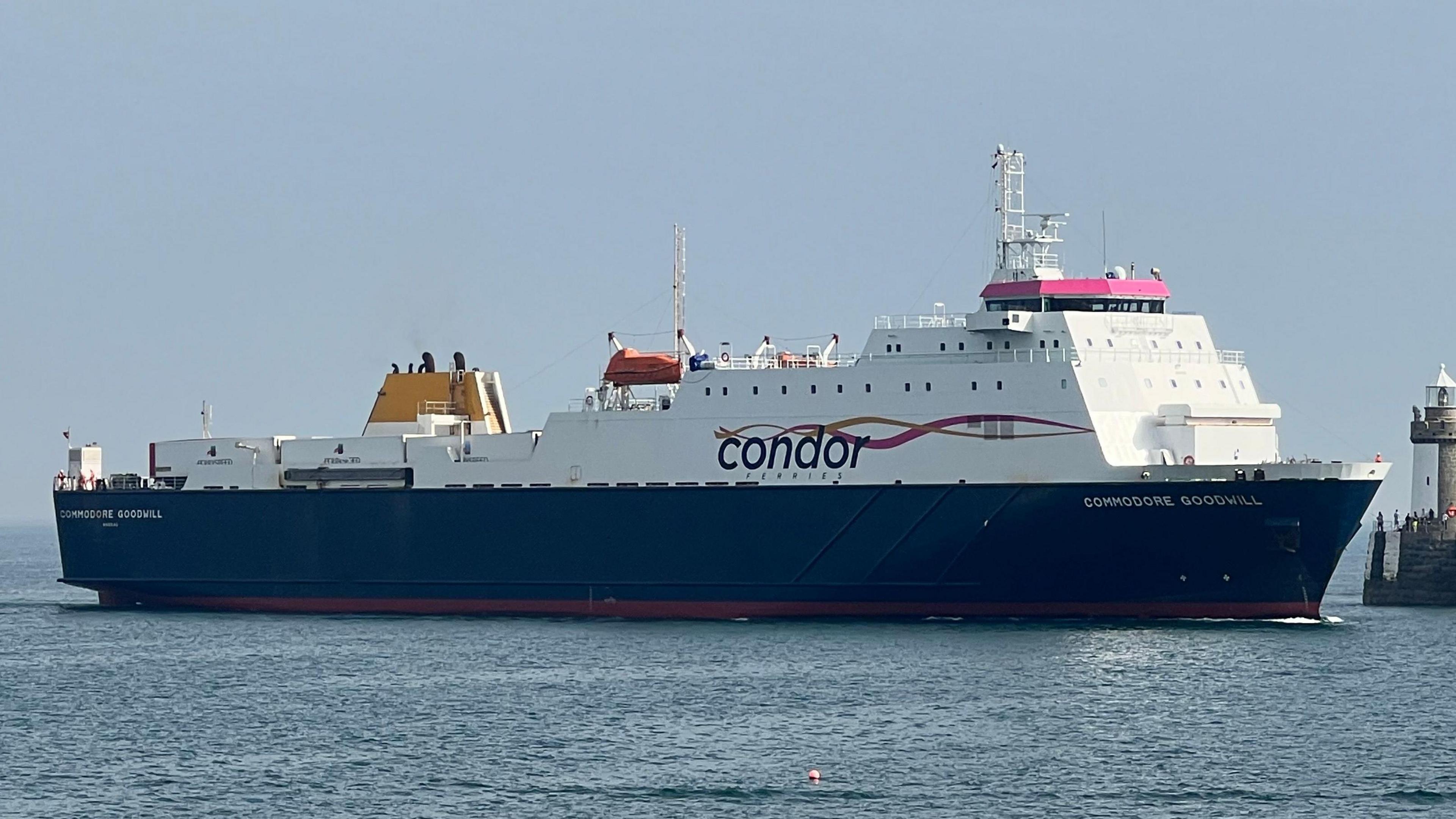
The Commodore Goodwill sustained damage to its hull following the colliison with L'Ecume II
- Published
A Condor ferry not using all radar devices to track other vessels before its fatal crash with a fishing boat was "not acceptable", a maritime expert has told a court.
Lewis Carr and Artur Sevash-Zade, the deck crew onboard the Commodore Goodwill at the time of the collision with L'Ecume II, have both pleaded not guilty to three counts of gross negligence manslaughter.
Skipper Michael Michieli and his crew members Larry Simyunn and Jervis Baligat died following the crash on 8 December 2022.
Maritime expert Captain Brian McJury told Jersey's Royal Court that he was "surprised a little" that the crew and also higher-ranking staff had not been using all electronic devices needed to detect other vessels.
Answering questions from Mr Carr's defence, Mr McJury said it was "common sense to use everything at your disposal".
He also told the court that "to not look at one radar" for longer than 15 minutes at a time was "much too long".
According to regulations, vessels should give each other a minimum closest point of approach (CPA) of one nautical mile for safety reasons.
The court was told the Goodwill did not consistently abide by the rule, including on the morning of the collision when it was passed either side by smaller boats shortly after departing Guernsey.
Mr McJury said that he would have expected Mr Carr to be on the deck ahead of his shift to be "aware of his situational position" before control was handed to him by the captain at 04:45 GMT.
He said he "wouldn't expect the master to remain on the bridge" to monitor passing vessels.
Mr McJury added that even though the Goodwill had been delayed leaving Guernsey by more than 30 minutes, time should not be "taken into account for collision avoidance".
"It may add pressure... but it wouldn't compromise passing at a distance that wasn't safe," he said.
Audible collision warnings
Mr McJury said when he listened to audio evidence of the run-up to the collision he did not hear any alarms going off – specifically a collision alarm which is used to alert crew on the deck to potential situations.
Answering questions from the defence, he told the court that it was not common for vessels fitted with collision alarms to have the audio of them switched off as the "function is to assist you".
Earlier in the trial, the court was told by the prosecution that both Mr Carr and Mr Sevash-Zade ignored visual collision warnings 10 minutes before the collision.
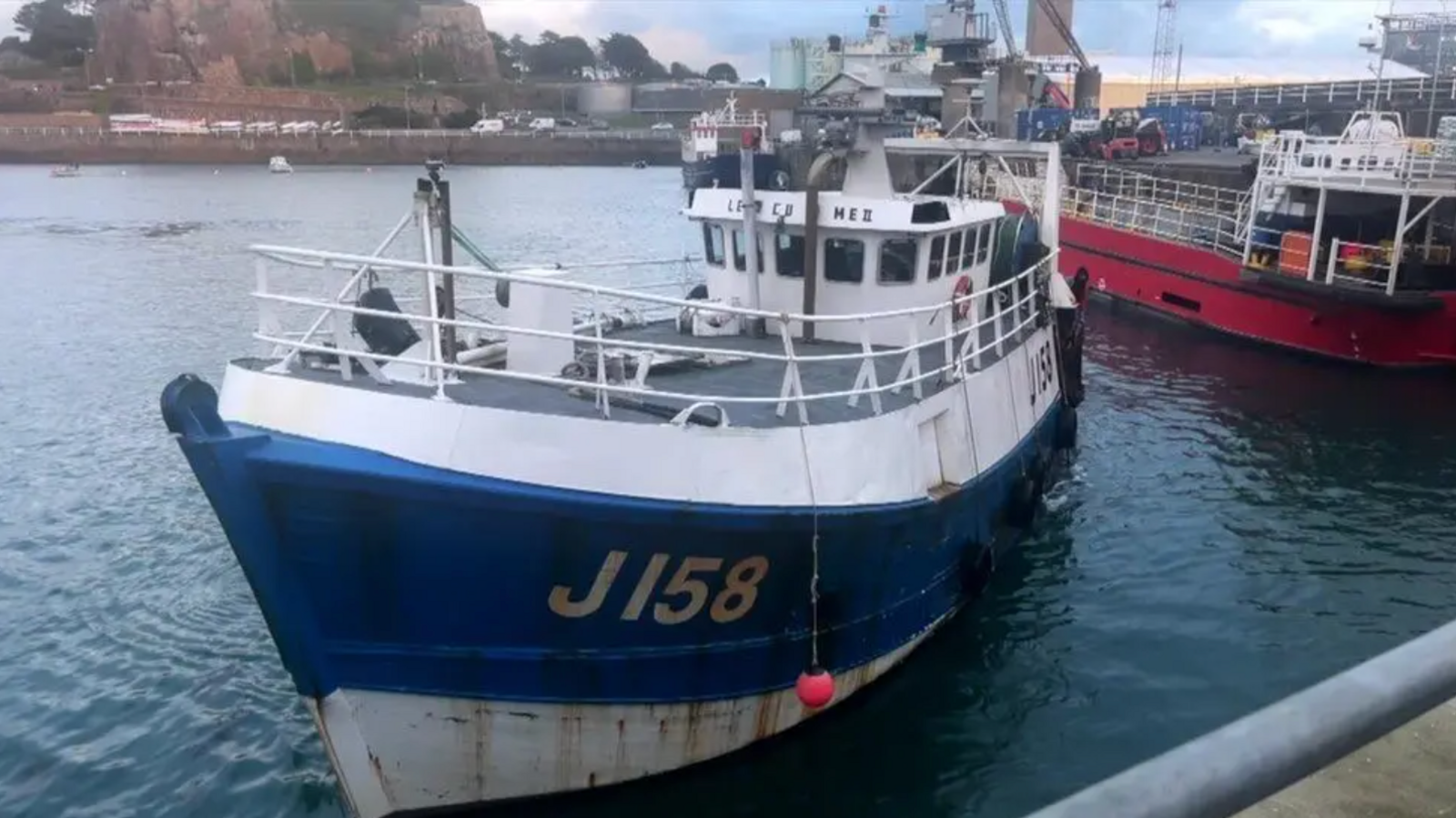
L'Ecume II sunk following the collision with Commodore Goodwill in December 2022
Mr McJury described L'Ecume II as a "large radar reflector" because its hull was wooden and the topside, its entire above-water shelter, was made of steel.
Talking about detecting and tracking a wooden boat by radar, he told the court that it would be "fairly reliable once in sufficient range".
The court heard earlier in the trial that at 05:15 GMT a "clear radar" of L'Ecume II was detected by the Goodwill - 20 minutes before the collision.
The trial continues.
Follow BBC Jersey on X, external and Facebook, external. Send your story ideas to channel.islands@bbc.co.uk, external.
- Published10 September
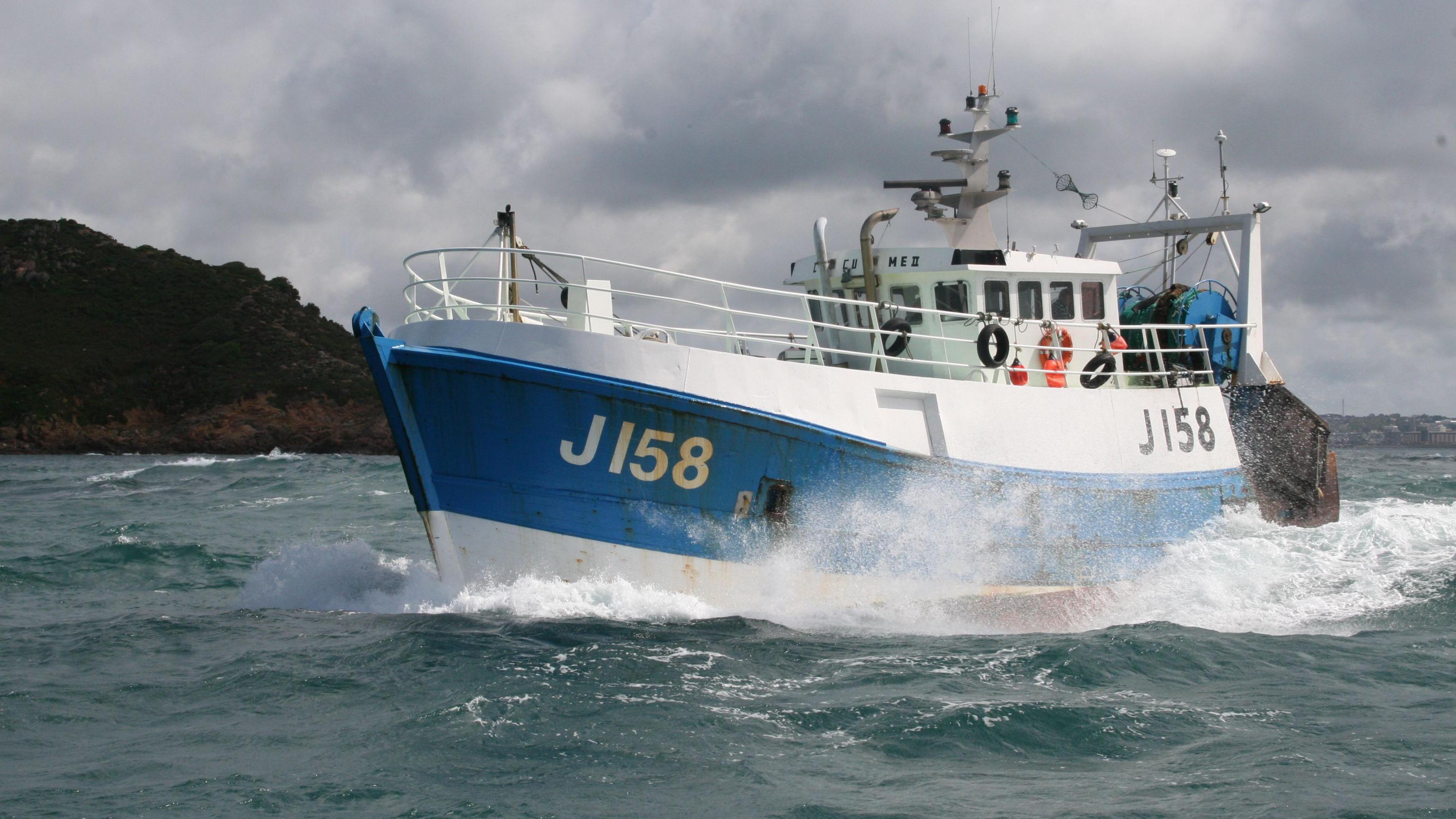
- Published9 September
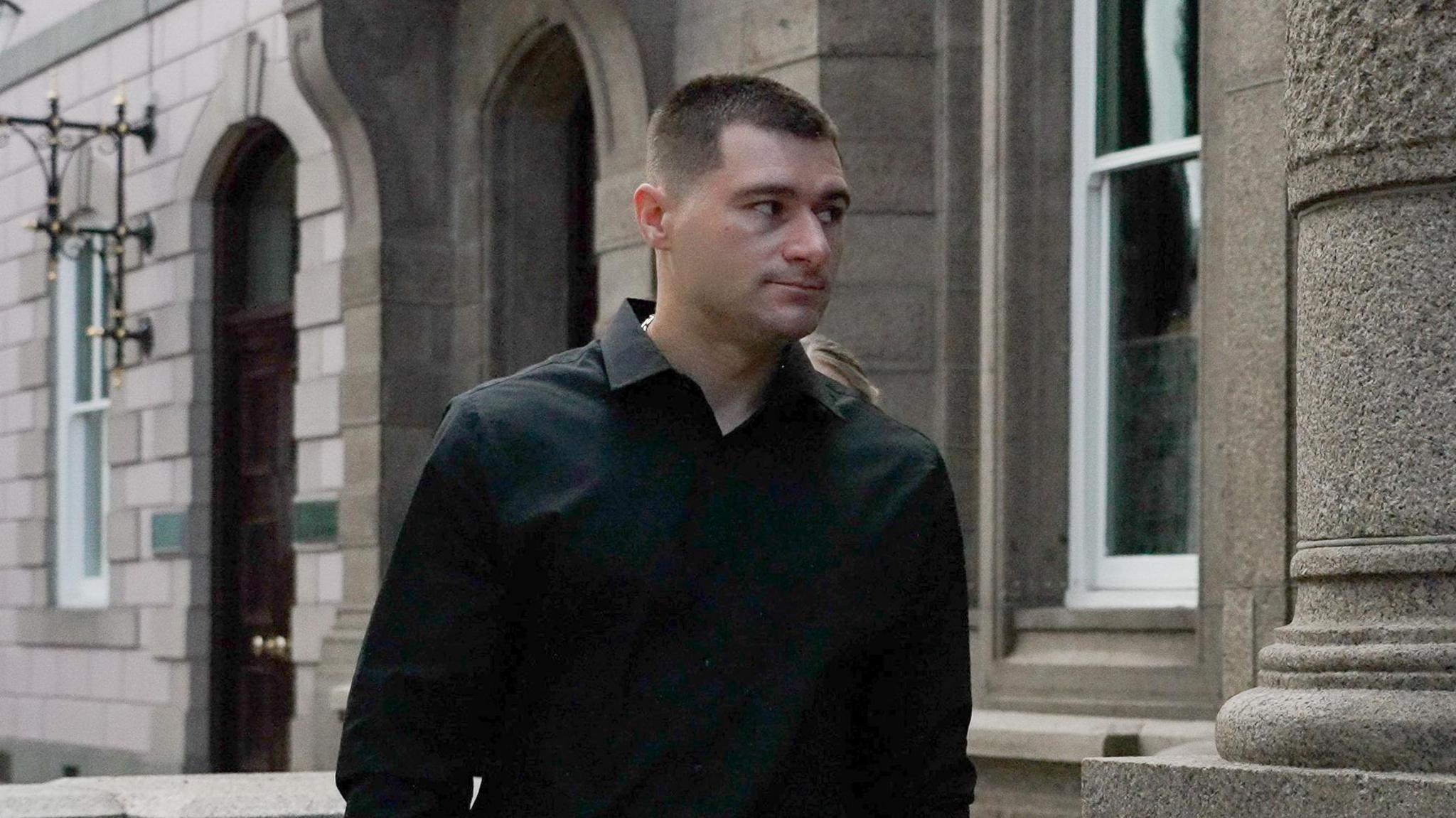
- Published8 September
